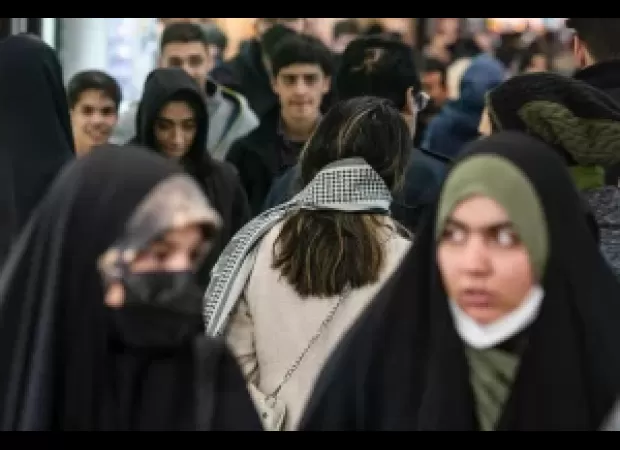Separation and discrimination based on gender, particularly the systemic oppression of women in various aspects of life.
Iran's morality police, known as the Guidance Patrol, are aggressively enforcing the hijab dress code, with reports of violence and abuse against women and girls. Nika's case adds to the growing concern.

Hijab has once again become a contentious issue in Iran, with the morality police known as the Guidance Patrols resuming their forceful presence on the streets. Videos have surfaced showing women and girls being dragged away and reports of physical abuse and mistreatment in custody have sparked outrage. The recent case of Nika Shakarami, who was allegedly sexually assaulted and killed by security forces in 2022, has only added more fuel to the fire and reinforced the accusations of brutality against the morality police. It is a bleak reality when even the family members of victims are being targeted for arrest, like Nika's sister Aida who was recently detained for violating the strict dress code.
Narges Mohammadi, a Nobel Peace laureate who is currently imprisoned, has called on the people of Iran to protest the government's "war against women." This comes at a time when the world's attention has shifted to the tensions between Iran and Israel, overshadowing the ongoing violations of women's rights in the country. The Iranian regime has not only restricted women's freedom to dress as they choose, but they have also become a symbol of defiance for the entire population. The people, regardless of gender, are now speaking out against corruption and oppression by the government and religious leaders.
The government has intensified its control over women's appearance, implementing strict legislation and using traffic cameras to identify and punish those who do not comply. Women are being denied access to public transport and banks, businesses are being shut down, and even men are being targeted for supporting women's right to dress as they choose. This crackdown on women's rights has only escalated since the international community has turned its attention elsewhere, giving the regime an opportunity to silence dissenting voices.
The death of Mahsa Amini, a young Kurdish woman who was detained for not wearing a hijab, sparked widespread protests and a wave of defiance among the people, particularly women. The regime responded with violence, killing hundreds and arresting thousands. However, this did not deter the women who continued to challenge the strict dress code. This defiance has become a source of concern for the authorities, as it not only challenges their control over women, but also raises questions about President Ebrahim Raisi's failure to address rampant corruption within the government.
The Raisi government, which had promised to dismantle the morality police during its election campaign, has now become a proponent of their forceful presence on the streets. This has caused backlash from the public and even some newspapers have criticized the government for breaking its promise and allowing the morality police to resume their oppressive tactics. The government claims to have taken steps towards curbing corruption, but there is little evidence to support this. In fact, it seems that the regime is more focused on silencing dissent and maintaining its control over state institutions, including universities.
It is a tragic reality when a society fails to protect its most vulnerable members, especially women and children. The people of Iran, with their rich history and culture, deserve better than a repressive regime that uses its resources to oppress its own citizens rather than addressing real issues of corruption and inefficiency. The women of Iran have become easy targets and scapegoats in this struggle for power and control. It is a lesson that history has taught us time and time again, that a society that cannot protect its women and children is doomed to fail. The people of ancient Persia were not exceptions to this truth.


